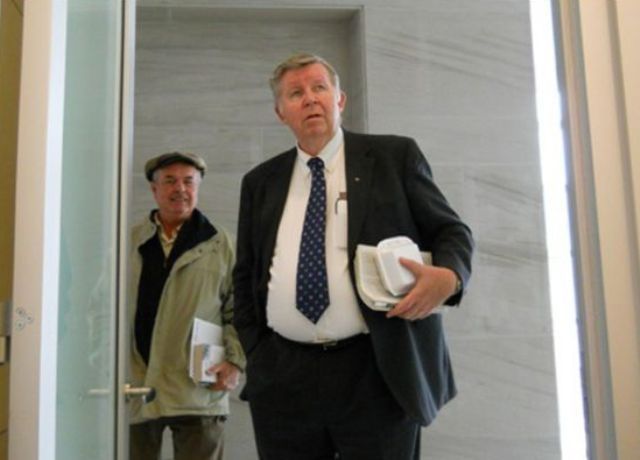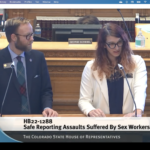Appeals court finds no racial discrimination despite excusal of three Black jurors in a row

The state’s second-highest court has decided there was no intentional racial discrimination when an Arapahoe County prosecutor dismissed three Black people in a row from serving on a Black defendant’s jury.
The appeal from Shawne Alexander Toney implicated the U.S. Supreme Court’s landmark case of Batson v. Kentucky, which held that intentional racial discrimination in jury selection is unconstitutional. It is uncommon for Colorado’s Court of Appeals to find purposeful discrimination, though, given the requirement of any “race-neutral” reason to justify a juror’s dismissal.
A jury convicted Toney in 2018 of two charges of driving under the influence, and Toney received a six-year sentence. The judge concluded that since Toney had at least three prior DUIs, he should be sentenced for a felony-level offense.
After voir dire, which is the part of jury selection during which the parties ask questions of potential jurors, the first three people the prosecutor elected to dismiss happened to be Black. The defense objected.
Under a “Batson challenge,” the party who objects to a juror dismissal must allege that the dismissal is based on race, after which the party seeking to excuse the juror needs to justify their actions with non-racial reasons. The trial judge then weighs the information and decides whether purposeful discrimination is likely occurring.
Critics of the Batson process believe it is relatively easy for attorneys to sidestep a charge of discrimination by simply stating any reason separate from race. Such reasons, however, may be implicitly correlated with race – for instance, if a juror states a belief that police engage in racial profiling.
In Toney’s case, then-District Court Judge Kurt A. Horton found no indication that the prosecutor was intentionally excusing Black people from the jury. For the first juror, a college student identified as A.A., the prosecution sought to dismiss her because she worried about the consequences of a DUI on a defendant’s record.
“You can lose your license for, like however long. You can go to jail. Like, it can have some serious effects on your life,” Juror A.A. said during voir dire. She immediately followed up with: “I don’t want to be on the road, like, just driving somewhere and I get hit by them (drunk drivers).”
The second Black juror, M.W., stated that blood alcohol testing may not “necessarily be accurate” because “everybody’s body shape is a lot different” and one person might be “in more trouble or the same trouble when this person really wasn’t even, like, drunk.”
Finally, Juror E.M. wrote on his juror questionnaire, in response to a question about bad experiences with police officers, that police have pulled guns on him and pulled him over “many times for no reason.”
During voir dire, when the prosecutor asked Juror E.M. how he felt about police officers, he responded, “I like them.” The prosecutor asked further whether Juror E.M. would view officers’ testimony more positively or negatively than a non-law enforcement witness’.
“I’d view them on equal planes, I guess,” Juror E.M. answered.
Horton agreed with the prosecutor that she had provided race-neutral reasons for dismissing the three jurors. Juror A.A. had made comments about testing and the consequences of DUIs, and Juror M.W. had “indicated wrongly” the accuracy of a blood test in establishing intoxication.
As for Juror E.M., Horton found that he provided inconsistent statements about his experience with police officers. Although he told the prosecutor he liked police, “his questionnaire does speak for itself as well” in indicating Juror E.M.’s prior bad experiences.
Horton later observed that Toney’s jury had a “high percentage, fortunately, of minority representation,” and guessed that seven of the 13 members of the jury ended up being persons of color.
On appeal, Toney pointed out that the dismissal of even one juror based on their race amounts to a constitutional violation, and offered several reasons suggesting the prosecutor likely had ulterior motives for dismissing the three Black jurors. For example, the prosecutor did not follow up with Juror E.M. on his views about police officers, even though she knew there was a discrepancy with his questionnaire.
The defense also believed that Horton had improperly used his own reasons, separate from the prosecutor’s, for allowing the dismissal of the Black jurors. Last month, the Colorado Supreme Court reversed a Hispanic defendant’s conviction because, in part, a trial judge incorrectly supplied his own explanations when denying a Batson challenge.
A three-judge panel for the Court of Appeals conceded that Horton had “elaborated” on the prosecutor’s explanations, but found his handling of the Batson challenges was reasonable. Questions about the prosecutor’s credibility and a juror’s demeanor, explained Judge Craig R. Welling, are best left for the trial judge to evaluate.
“(G)iven the deference we must afford in this context, we conclude that the court didn’t err in finding that Toney failed to carry his burden of proving purposeful discrimination,” Welling wrote in the March 17 opinion.
State legislators, backed by defense attorneys, attempted to pass a bill this year seeking to reform the process for Batson challenges and diminish the exclusion of people of color from juries. Instead of requiring proof of intentional discrimination, the legislation would have asked judges to evaluate whether an “objective observer” could see race as a factor in a juror dismissal.
In the wake of opposition from all 22 of Colorado’s elected district attorneys, the Democratic sponsors declined to pursue the measure, asking the state Supreme Court to enact their proposal through a judicial rule instead.
The panel did reverse Toney’s DUI convictions, however, based on a recent Colorado Supreme Court decision requiring prosecutors to prove prior offenses to a jury in felony DUI cases. The Court of Appeals directed the trial court to lower Toney’s conviction to a misdemeanor, unless the district attorney’s office pursues another felony trial.
The case is People v. Toney.














